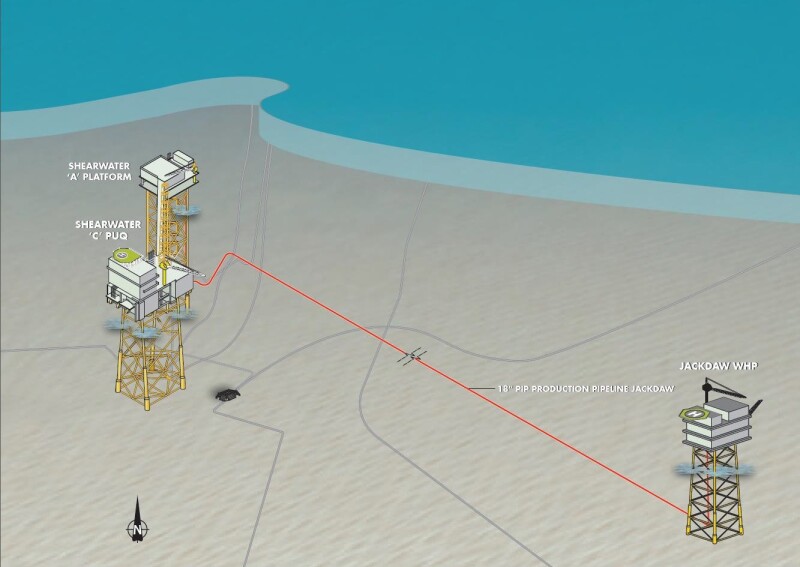Shell is moving forward with its plans to develop the Jackdaw natural gas field, which has been opposed by environmental groups, in the UK North Sea.
The decision to advance the controversial project comes almost 2 months after the London-based supermajor received approval from British regulators for the field's revised development plan.
The Jackdaw gas field, discovered in 2005, is located about 155 miles (250 km) east of Aberdeen in the central North Sea in about 255 ft (78 m) of water.
The field development will consist of a new wellhead platform that is not permanently attended, four production wells, and a 19-mile (31-km) 12-in. nominal bore trenched and buried pipeline connecting the platform to Shell’s existing Shearwater gas hub.
The project is expected to come online in the second half of 2025, with peak production from the field estimated at 40,000 BOED. This is more than 6% of projected UK North Sea gas production and with operational emissions of less than 1% of the whole UK basin, according to Shell.
Jackdaw also will produce the energy equivalent of heating more than 1.4 million UK homes, the company said.
“We are committed to providing our customers with secure and stable supplies of energy, and to do so responsibly, efficiently, and economically,” said Shell Upstream Director, Zoe Yujnovich, in a release.
“Investments like Jackdaw are consistent with the UK’s North Sea Transition Deal and Shell’s Powering Progress strategy, providing the energy people need today while serving as the foundation for investments in the low-carbon energy system of the future.”
According to Shell, projects like Jackdaw ensure the overall decline in UK North Sea production is gradual rather than too steep, matching a gradual drop in hydrocarbon demand as the energy transition takes place.
Gas from the Jackdaw field will come ashore at St. Fergus, where Shell is involved in the development of the Acorn Carbon Capture and Storage project, which could sequester carbon dioxide from industrial clusters in Scotland, the UK, and northern Europe. The Acorn project could also reform natural gas into low-carbon hydrogen, by capturing and storing the CO2.


